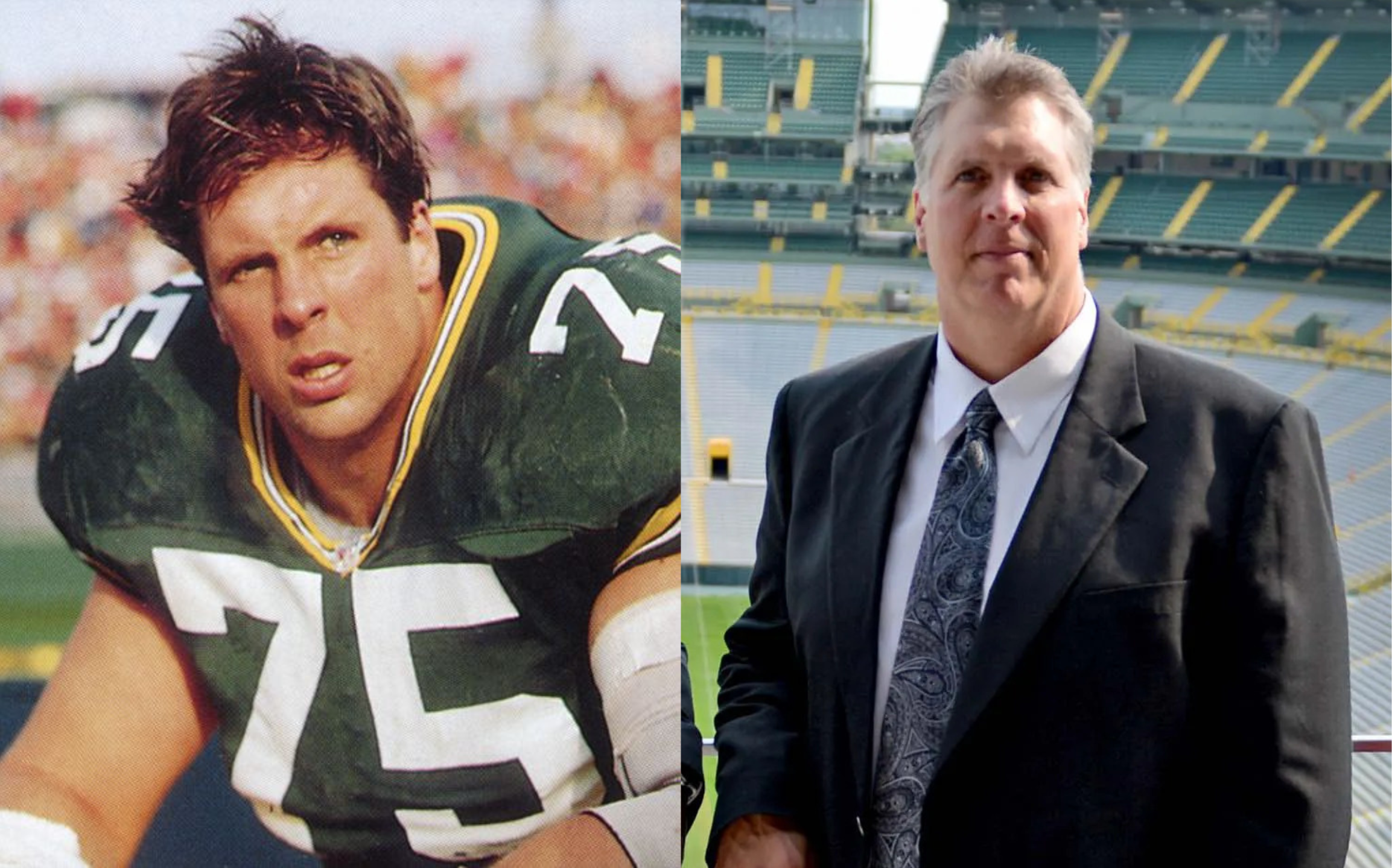
In the next profile of this series, Ken discusses how he engages players in meaningful conversations and his research on sports career transition.
The NFL Transition Coach program uses a peer-to-peer coaching model that empowers trained NFL Legends to offer structured guidance and support to players transitioning out of the NFL. NFL Total Wellness provides Transition Coaches with at least 70 hours of training to equip them with the skills necessary for effective relationship building, crisis management, and coordination of care. This interview series briefly profiles the coaches who assist players as they navigate the unique challenges of life after the game.
Ken Ruettgers was an offensive tackle for the Green Bay Packers for 11 years. He is now a college professor at Central Oregon Community College and founder of a non-profit group dedicated to helping former professional athletes cope with the stresses of retirement. Ken has been a Transition Coach since 2012. In this profile we have drafted a narrative based on a small section of Ken’s responses to three important questions.
"One of the great benefits is that, just by talking through that transition process, guys know they're not alone. They know that what they're going through and experiencing is very common to being a transitioning athlete, and that they will be, as guys have been before them, successful in their transition."
Ken sees the NFL Transition Coach program as “by far the best sport career transition program.” He highlights the unique nature of having formally trained former players partnered with younger players who are just embarking on their transition. Ken finds that most players have some difficulties transitioning out of the game and are appropriate for coaching. He notes that sometimes simply offering a listening ear can provide tremendous support for a player.
"It’s not us as transition coaches telling them what is or isn't the way to do it, or what's right or wrong. It's us trying to help pull out of them: What are your goals? What are your values? What are your beliefs and how does that fit into where you're going?"
Ken recognizes the importance of being tactful with engaging a player in a coaching relationship. He notes that it is important to listen, gain trust, and partner with the player. Ken finds that asking good questions and having meaningful conversations are an integral part of part of his approach. In particular, Ken will assess a player’s goals, values, and beliefs as a way to empower him to think beyond the game and to begin building their future.
"I put it into three categories: money, marriage, and mission. But those three things come out of who you are. Getting yourself healthy — physically, spiritually, emotionally, and mentally, where am I? And then if I answer that, I can focus on my marriage and relationships, my money or financial situation, and then my meaning or purpose or career…And by far the greatest commonality of challenges was identity. ‘Who am I now that I'm not the player that used to be?’"
Ken is no stranger to transition. After playing for 11 years, he took on the daunting task of getting a PhD in Sociology from Omega Graduate School (formerly Oxford Graduate School) in Dayton, Tennessee. He completed his doctoral dissertation on sports career transition and the perceived barriers of recently retired NFL players. Through this research, his own experience, and his experience as a Transition Coach, Ken acknowledges a multitude of challenges that players face. From financial insecurity to relationship concerns to identity issues and missing the camaraderie in the locker room, a player’s transition can come with any number of experiences that can feel extremely isolating. Ken encourages the former players he works with to explore all the resources and reflect on the assets they have gained in their journey to and through the NFL and utilize those to launch them into this next adventure in life.
